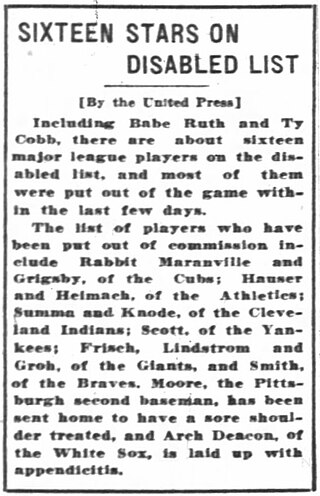Related Research Articles

A novella is a narrative prose fiction whose length is shorter than most novels, but longer than most short stories. The English word novella derives from the Italian novella meaning a short story related to true facts.

A connoisseur is a person who has a great deal of knowledge about the fine arts; who is a keen appreciator of cuisines, fine wines, and other gourmet products; or who is an expert judge in matters of taste. In many areas, the term now has an air of pretension, and may be used in a partly ironic sense. In the art trade, however, expert connoisseurship remains a crucial skill for the identification and attribution to individual artists of works by the style and technique, where documentary evidence of provenance is lacking. The situation in the wine trade is similar, for example in assessing the potential for ageing in a young wine through wine tasting.
The Incoterms or International Commercial Terms are a series of pre-defined commercial terms published by the International Chamber of Commerce (ICC) relating to international commercial law. Incoterms define the responsiblities of exporters and importers in the arrangement of shipments and the transfer of liability involved at various stages of the transaction. They are widely used in international commercial transactions or procurement processes and their use is encouraged by trade councils, courts and international lawyers. A series of three-letter trade terms related to common contractual sales practices, the Incoterms rules are intended primarily to clearly communicate the tasks, costs, and risks associated with the global or international transportation and delivery of goods. Incoterms inform sales contracts defining respective obligations, costs, and risks involved in the delivery of goods from the seller to the buyer, but they do not themselves conclude a contract, determine the price payable, currency or credit terms, govern contract law or define where title to goods transfers.
Nigga is a colloquial and vulgar term used in African-American Vernacular English that began as a dialect form of the word nigger, an ethnic slur against black people. The word is commonly associated with hip hop music and African-American gang culture. In dialects of English that have non-rhotic speech, nigger and nigga are often pronounced the same.

The idiom tongue-in-cheek refers to a humorous or sarcastic statement expressed in a serious manner.

The épée, sometimes spelled epee in English, is the largest and heaviest of the three weapons used in the sport of fencing. The modern épée derives from the 19th-century épée de combat, a weapon which itself derives from the French small sword.
Camp may refer to:
Redskin is a slang term for Native Americans in the United States and First Nations in Canada. The term redskin underwent pejoration through the 19th to early 20th centuries and in contemporary dictionaries of American English it is labeled as offensive, disparaging, or insulting.

In finance, market depth is a real-time list displaying the quantity to be sold versus unit price. The list is organized by price level and is reflective of real-time market activity. Mathematically, it is the size of an order needed to move the market price by a given amount. If the market is deep, a large order is needed to change the price.

In Major League Baseball (MLB), the injured list (IL) is a method for teams to remove their injured players from the roster in order to summon healthy players. Before the 2019 season, it was known as the disabled list (DL).
Lad culture was a media-driven, principally British and Irish subculture of the 1990s and early 2000s. The image of the "lad"—or "new lad"—was that of a generally middle class figure espousing attitudes typically attributed to the working classes. The subculture involved heterosexual young men assuming an anti-intellectual position, shunning cultural pursuits and sensitivity in favour of drinking, sport, sex and sexism. Lad culture was diverse and popular involving literature, magazines, film, music and television, with ironic humour being a defining trope. Principally understood at the time as a male backlash against feminism and the pro-feminist "new man", the discourse around the new lad represented some of the earliest mass public discussion of how heterosexual masculinity is constructed.
Disparagement, in United States trademark law, was a statutory cause of action that permits a party to petition the Trademark Trial and Appeal Board (TTAB) of the Patent and Trademark Office (PTO) to cancel a trademark registration that "may disparage or falsely suggest a connection with persons, living or dead, institutions, beliefs, or national symbols, or bring them into contempt or disrepute." In 2017, the Supreme Court struck down the disparagement provision as unconstitutional in Matal v. Tam.

A mark in Australian rules football is the catch of a kicked ball which earns the catching player a free kick. The catch must be cleanly taken, or deemed by the umpire to have involved control of the ball for sufficient time. A tipped ball, or one that has touched the ground cannot be marked. Since 2002, in most Australian competitions, the minimum distance for a mark is 15 metres.
U.S. Term Limits, Inc. v. Thornton, 514 U.S. 779 (1995), is a landmark U.S. Supreme Court decision in which the Court ruled that states cannot impose qualifications for prospective members of the U.S. Congress stricter than those the Constitution specifies. The decision invalidated 23 states' Congressional term limit provisions. The parties to the case were U.S. Term Limits, a nonprofit advocacy group, and Arkansas politician Ray Thornton, among others.
At His Majesty's pleasure is a legal term of art referring to the indeterminate or undetermined length of service of certain appointed officials or the indeterminate sentences of some prisoners. It is based on the proposition that all legitimate authority for government comes from the Crown. Originating in the United Kingdom, it is now used throughout the Commonwealth realms, Lesotho, Eswatini, Brunei and other monarchies. In realms where the monarch is represented by a governor-general, governor or administrator, the phrase may be modified to be at the Governor's pleasure, since the governor-general, governor, lieutenant governor or administrator is the king's personal representative in the country, state or province.
In motorsports, homologation is the type approval process through which a vehicle, a race track, or a standardised part is required to go for certification to race in a given league or series. The process of testing and certification for conformance to technical standards is usually known as type approval in English-language jurisdictions. The regulations and rules that must be met are generally set by the series's sanctioning body. The word is derived from Greek ὁμολογέω, homologeo, 'I agree'.

Irony, in its broadest sense, is the juxtaposition of what on the surface appears to be the case and what is actually the case or to be expected; it is an important rhetorical device and literary technique.

A meal replacement is a drink, bar, soup, etc. intended as a substitute for a solid food, usually with controlled quantities of calories and nutrients. Some drinks come in powdered form or pre-mixed health shakes that can be cheaper than solid foods with identical health qualities. Medically prescribed meal replacement drinks include the body's necessary vitamins and minerals. Bodybuilders sometimes use meal replacements, not formulated for weight loss, to save food preparation time when eating 5-6 meals a day.
The Washington Redskins trademark dispute was a legal effort by Native Americans to define the term "redskin" to be an offensive and pejorative racial slur to deprive the owners of the NFL's Washington Redskins of the ability to maintain federal trademark protection for the name. These efforts had primarily been carried forward in two cases brought before the U.S. Patent and Trademark Office (USPTO). While prevailing in the most recent case in which the trademarks were cancelled, petitioners withdrew for further litigation now that the legal issue has become moot due to a decision in another case which found the relevant portion of the trademark law to be an unconstitutional infringement on freedom of speech.
Matal v. Tam, 582 U.S. ___ (2017) is a Supreme Court of the United States case that affirmed unanimously the judgment of the United States Court of Appeals for the Federal Circuit that the provisions of the Lanham Act prohibiting registration of trademarks that may "disparage" persons, institutions, beliefs, or national symbols with the United States Patent and Trademark Office violated the First Amendment.
References
- ↑ Mark, David; Mccutcheon, Chuck. "How to Talk Like a Politician". POLITICO Magazine.
- ↑ "Political press". Los Angeles Times. February 22, 2004.
- ↑ "Wilson's Outburst Did Dishonor to All of Congress". Roll Call. 15 September 2009.